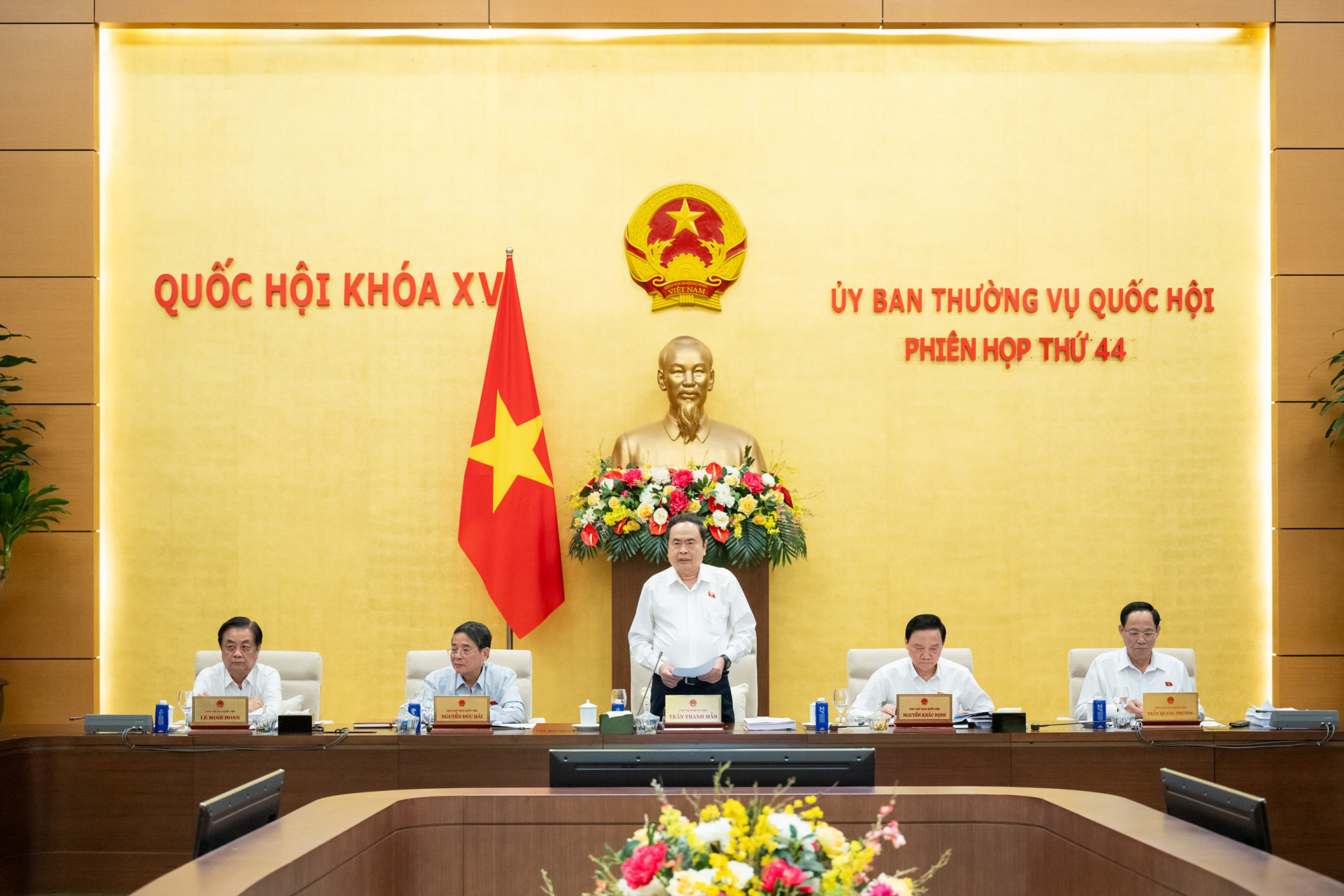On the morning of April 14, the National Assembly Standing Committee discussed the draft amendment to the Atomic Energy Law. One of the key new proposals in the draft law is the Government’s recommendation to delegate authority to the Prime Minister to decide on investment policies for nuclear power plants.
On behalf of the Prime Minister, Minister of Science and Technology Nguyen Manh Hung presented the Government's report, noting that while the 2008 Atomic Energy Law specified 76 administrative procedures, the amended draft law proposes 51 procedures.
Accordingly, the draft law abolishes 25 procedures, amends 9, and retains 42. This represents a reduction of 25 procedures, or approximately 32.9%.
Decentralization must be clear and cautious

Regarding decentralization, the Government proposes in the draft law that the authority to decide on investment policies for nuclear power plants be assigned to the Prime Minister, rather than the National Assembly as currently required by the Law on Investment and the Law on Public Investment.
The Government explained that the 2008 Atomic Energy Law had already delegated authority to provincial-level People's Committees to issue licenses for X-ray equipment used in medical diagnostics (Point b, Clause 1, Article 77 of the current law). Under the new approach, only matters under the National Assembly's jurisdiction will be defined by law, while issues under the Government’s jurisdiction will be regulated through decrees and implementing documents.
A forthcoming decree guiding the amended law is expected to further decentralize responsibilities from the Ministry of Science and Technology to provincial authorities. These responsibilities would include licensing medical X-ray equipment, low-risk radiation sources and devices, and preparing for and responding to incidents.
Commenting on the draft, Hoang Thanh Tung, Chairman of the Legal and Judicial Committee, emphasized that the proposed authority shift marks a significant departure from current laws. He stressed that although decentralization is the general direction, nuclear power projects require exceptional caution and should be carefully reported to the National Assembly.
Phan Van Mai, Chairman of the Economic and Financial Committee, emphasized that while decentralization should be bold, it must also be clear. Decision-making should remain efficient, but the responsibilities, processes, and authorities must be well-defined.
Deputy Prime Minister Nguyen Chi Dung affirmed that the Government would clarify the rationale for decentralization and assess related impacts to ensure safety and accountability, reiterating that nuclear safety is the highest priority.
“We will consult again with the Government and the Prime Minister. Personally, I believe we should base the decision on project scale rather than investment capital alone. Specifically, for small and medium-sized projects that are standardized and manageable, the Prime Minister should decide. For large-scale projects with significant impacts from operation to post-closure, the decision should rest with the National Assembly,” said Nguyen Chi Dung.
He also proposed expediting approvals for clearly defined issues to serve as a foundation for implementing the Ninh Thuan Nuclear Power Plant project.
Socialization must ensure radiation and information safety
Another notable topic in the draft law is the promotion of private sector participation in the atomic energy field.
The draft encourages enterprises and organizations to establish science and technology development funds to support nuclear energy research and application.
Vice Chairman of the National Assembly Vu Hong Thanh agreed on the necessity of mobilizing social resources for nuclear science and technology.
“The draft law outlines several forms of socialization. However, I believe we should expand the scope to allow greater involvement of businesses and citizens, such as in training and developing high-quality human resources,” said Thanh.
Nevertheless, he cautioned that nuclear energy remains a new and high-risk sector. “Socialization must not compromise radiation safety or information security, as nuclear projects involve a significant amount of national classified information,” he warned.
The Vinh